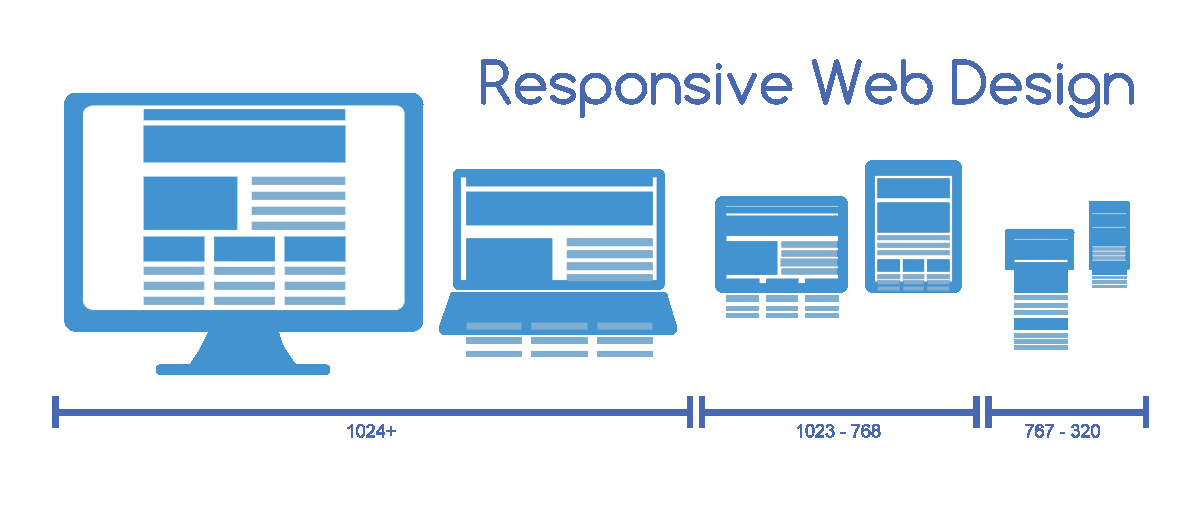As mobile technology continues to develop at an incredible rate and mobile usage increases phenomenally year on year, responsive web design is no longer a choice – it’s a necessity.
The majority of small to medium sized businesses in the UK still don’t have a responsive website. A crucial factor in today’s competitive online landscape, your lack of a mobile-friendly website could be causing you to miss out on a significant amount of business – not only is it more difficult for new customers to find your website, but it could also be deterring existing customers from returning.
What is responsive web design?
A responsive website is one that detects what type of device a visitor is using – for example, a smartphone, a tablet, or a desktop computer. It then responds accordingly by adjusting the different design elements to the screen size of the device, delivering a streamlined experience for mobile and desktop users alike. Easy and efficient, as your customers change devices, your website will change with them.
Why is a responsive website so important?
There are many benefits of using responsive web design for your business:
Mobile Use Is On the Rise
There’s no denying the popularity of mobile devices, with over 70% of UK adults now owning a smartphone. Increasingly, web users are choosing to use these devices over desktop computers to access the internet, with over half of Google searches now originating from smartphones and tablets. In fact, recent figures show that a staggering 66% of people in the UK use their mobile phone to browse the internet – potentially, this means that two thirds of your customers are viewing your website on a smaller screen, making responsive design an imperative.
User Experience is Key
For the majority of online customers, a website’s functionality and appearance is priority, with 33% abandoning a site if they cannot interact with it properly on their mobile device. According to Google, 53% of mobile users will also abandon a site if it takes longer than 3 seconds to load. Fast, functional, and designed to look great on any device, a responsive website provides the best user experience possible, helping to improve your credibility, boost your conversion rates, and increase customer retention.
Search Engines Prefer Responsive Websites
Mobile-friendly websites are given precedence by major search providers such as Google, Yahoo, and Bing because they offer a better user experience, so if your goal is to perform better in search rankings, you need a site that adapts to every screen size. At the end of last year, Google even announced plans to roll out a mobile-first index due to the high numbers of mobile searchers. Responsive web design ensures therefore that your business is fully optimised for search engines, helping you to reach more customers on the web.
It Saves Time and Money
Not only does a responsive website make life easier for your customers, it also makes life easier for you. With one site to manage instead of separate desktop and mobile versions, both efficiency and value for money are increased, as you will only ever have to update, optimise, and market a single website. As well as being cost-effective, due to their adaptable nature, responsive websites are also far simpler to operate, making for a hassle-free experience, lower web content management costs, and a higher ROI for your business.
An Investment for the Future
A responsive website is not just an essential resource for today, but for tomorrow too. Mobile use is only set to increase, and customers are expecting more and more from the brands they interact with online. With fewer than half of all UK businesses using responsive design, a device-friendly site will put you ahead of the competition. Finally, responsive design effectively renders your website future-proof, as no matter what new devices take off – smart watches, TVs, glasses, etc. – it will continue to deliver a streamlined experience for all.

